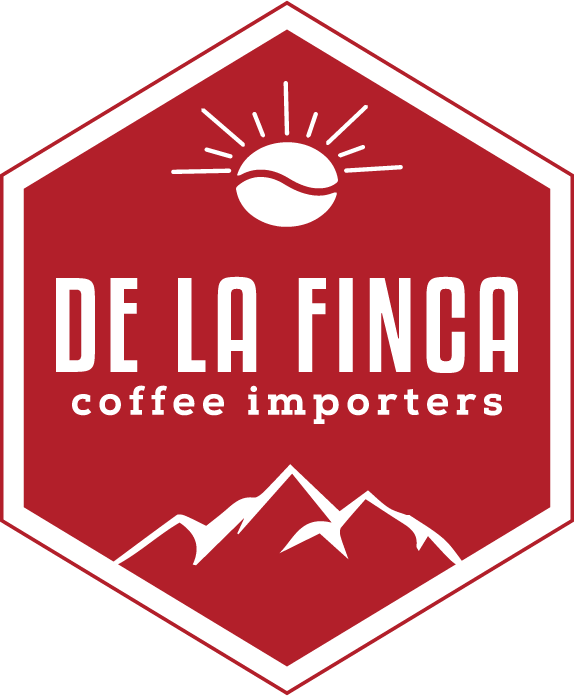Types of Commercial Coffee Roasting Equipment: Getting Started with Your Roasting Business
When it comes to starting a coffee roasting business, selecting the right equipment is one of the most critical decisions you'll make. Commercial coffee roasting equipment is a significant investment that will affect the quality and consistency of your product, as well as your business’s long-term success.
In the next few paragraphs, we’ll explore the various types of coffee roasting machines available for commercial use, helping you make an informed decision when choosing the best coffee roasting equipment for your business.
Types of Coffee Roasting Machines
Coffee roasting machines are the heart of any coffee roaster's operations. These machines use heat to transform green coffee beans into the roasted beans we know and love. The type of machine you choose will depend on your production needs, your roasting style, and your budget. Commercial coffee roasting equipment is designed to handle large quantities of coffee beans, ensuring high-quality, consistent roasting results.
1. Drum Roasters
Drum roasters are among the most common types of commercial coffee roasting equipment. These machines feature a rotating drum that evenly distributes heat throughout the beans. The beans are roasted as they tumble inside the drum, creating a uniform roast. Drum roasters are ideal for large-scale operations and can handle significant volumes of coffee.
Pros:
Offers excellent heat control and consistency.
Can roast large batches of beans.
The gradual roast profile allows for complex flavor development.
Cons:
Slower roasting time compared to other types of machines.
Higher energy consumption.
2. Air Roasters (Fluid Bed Roasters)
Air roasters, also known as fluid bed roasters, are another popular choice for commercial coffee roasting. These machines use hot air to suspend the coffee beans and circulate them for even roasting. The process is faster than drum roasting. Air roasters are often used by smaller businesses and specialty roasters due to their ability to produce clean and consistent flavors.
Pros:
Faster roasting times.
Produces a cleaner flavor profile.
Requires less energy compared to drum roasters.
Cons:
Can have a higher upfront cost.
Limited batch size, not ideal for large-scale operations.
3. Hybrid Roasters
Hybrid roasters combine the features of both drum and air roasters, offering the best of both worlds. These machines use a drum for the roasting process but incorporate air for improved heat distribution. Hybrid roasters are perfect for roasters who want the control and consistency of a drum roaster with the speed and efficiency of an air roaster.
Pros:
Provides a balance between the deep flavor complexity of drum roasting and the speed of air roasting.
Suitable for both small and large-scale operations.
Cons:
More complex and expensive than single-type roasters.
4. Sample Roasters
Sample roasters are smaller machines used for testing and evaluating different beans before committing to a full batch. These machines allow roasters to experiment with new blends, determine roast profiles, and fine-tune roasting parameters. While not suitable for large-scale production, sample roasters play an essential role in research and development for coffee roasters.
Pros:
Allows for small-batch testing and flavor profiling.
Essential for quality control in commercial roasting operations.
Cons:
Not ideal for production-level roasting.
Key Considerations When Choosing Coffee Roasting Equipment for Your Business
When selecting commercial coffee roasting equipment, there are several factors to consider to ensure you make the right investment:
Batch Size: How much coffee do you plan to roast at a time? Consider your current and future production needs when selecting a roaster.
Roast Profile: Different roasters provide different roast profiles. Choose a machine that can achieve the flavor profile you're aiming for in your coffee.
Energy Efficiency: Roasting machines can consume a lot of energy, so look for models with energy-saving features to keep operating costs low.
Budget: Commercial coffee roasting equipment can range in price depending on the type, size, and features. Establish a clear budget to avoid overspending.
Space: Consider the size of your facility and whether the roaster you’re interested in will fit comfortably.
Final Thoughts
Choosing the right commercial coffee roasting equipment is crucial to the success of your roasting business. Whether you go for a drum roaster, an air roaster, or a hybrid model, it’s essential to select the equipment that aligns with your production needs and business goals. By understanding the different types of roasting machines and considering factors such as batch size, roast profile, and energy efficiency, you’ll be well on your way to making an informed decision that supports your business’s growth.
Ready to invest in commercial coffee roasting equipment for your business? Explore all the options available and select a machine that will give you the control, efficiency, and quality you need to succeed in the competitive world of coffee roasting.
If you're not ready to invest in your own roasting machine just yet, here are two great options to get started:
Toll Roasting – Partner with an established roaster who can roast your beans for you. This allows you to build your brand and generate income without the upfront cost of equipment.
Renting Time on Another Roaster’s Machine – Many roasters offer machine rental services, giving you the flexibility to roast your beans on their equipment as you grow your business. This is a cost-effective way to scale up production without the full investment in a machine.
If you need more information or assistance in getting started with your roasting journey, don't hesitate to contact us— we're here to help every step of the way!
